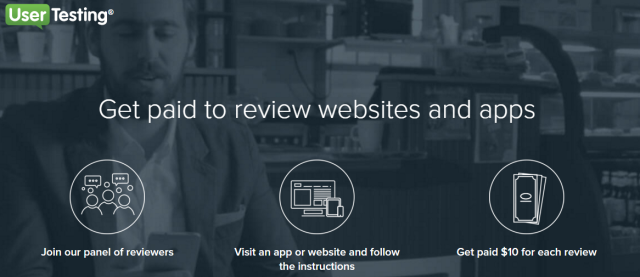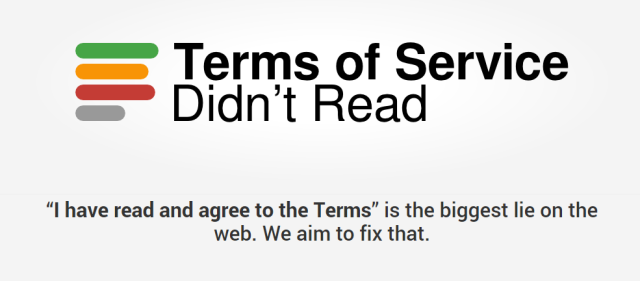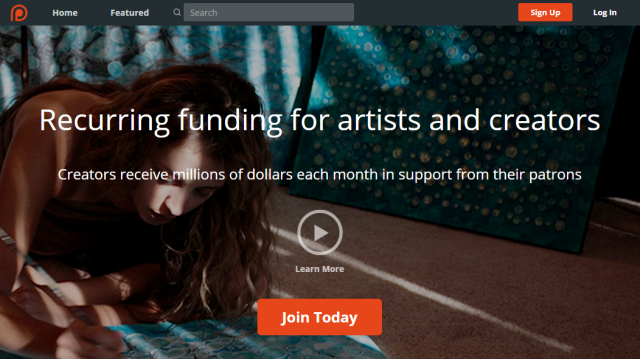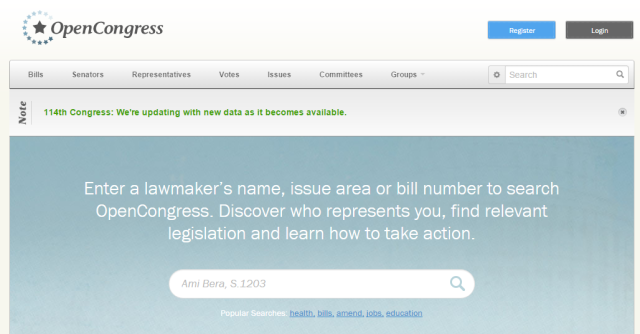

The World Wide Web can be a rough place, but there’s a lot you can do to make it better for yourself, and others. Here are 12 practical ideas you can start on right now!
Why: I’m sure you’ve had to deal with a lot of bad interfaces in your life, where the buttons have confusing labels or the content is unclear. Did you know companies will pay you to test their interfaces and tell them how to improve? You could help save us all from badly designed apps and websites!

If you have access to a microphone and are comfortable with speaking your thoughts aloud in English, you can also sign up as a tester with User Testing. An alternative in case you don’t is Enroll (run by product design company ZURB).
Why: It’s no secret that big software companies occasionally harbour big security holes. This jeopardizes everyone’s data, from personal information to finances. If you have a knack for finding bugs and want to use your talent for good instead of evil, both Google and Facebook are open to paying you for the bounties you find.
Why: Knowing the Terms of Service you are signing up for when you use the Internet is essential to protecting your rights online, and establishing a culture that keeps companies from sneaking in terms they shouldn’t.

If you can’t be bothered (like most of us), check out “Terms of Service; Didn’t Read” before you use a website’s service, and consider adding the extension to your browser. If that doesn’t work for you, try these other ways to know what’s in the Terms of Service.
Why: People who make websites hate having to optimize for older browsers (especially Internet Explorer). It wastes their time, clutters their code, and makes it harder for them to create modern features that take advantage of what newer browsers can offer. In other words, old browsers slow innovation down, so update yours regularly. Not only that, but your experience of the web will get better because of performance enhancements and features you otherwise wouldn’t be able to see or interact with.

Why: One of the best ways to ensure your favorite online content creators can continue to do their work is to give them the means to do it more. Maybe they have a donation button on their page, or a Patreon account. Consider making a regular subscription.
Why: Ad-block makes it harder for writers, film-makers, graphic artists, and programmers to earn money from their work. If they can’t make money from their work, they’ll have to put more time into other things, which means either the quality suffers, or you’ll have less to enjoy. Not convinced? Here are several more reasons why you should get rid of Ad-block.
Why: If one user you follow has blocked another user, there’s a good chance you will want to block them too, because they’re probably annoying or offensive. Thankfully, Twitter allows people to import other user’s block lists. Sharing yours will save your friends time and make the Twitter community a more peaceful place.

Why: Typos are an annoying scourge of the web, making us look unprofessional and making it harder for search engines to find relevant content when it’s spelled wrong. Website owners may even pay you for the typos you find, if you go through TypoBounty.com for example.
Why: Writers of your favorite online magazines and blogs love engaging with readers. It shows them what parts of their writing is engaging and resonating, gives them clues on what to write next, and it’s fun! However, online trolls are looking for attention and they waste everyone’s time and energy. If you engage with them, they’ll continue, and that means the writer has to spend time moderating when they could be writing, or engaging with worthwhile comments.
Why: We all love a well-written piece of satire, but sometimes fake news causes a real scare. Facebook is experimenting with a Satire tag to mark articles from sites like The Onion, but you can do your part too.

Take everything you read with a grain of salt, and try to check Snopes whenever you come across something that seems fantastical or too-good-to-be-true, and comment when your friends share pseudo-science or believe the fake news.
Why: Without Net Neutrality, Internet Service Providers can give certain content faster or slower speeds depending on what the creator pays for, or block some content completely. If we lose net neutrality, the Internet would no longer be an even playing field for businesses, minority groups, or niche interests. What we love most about the Internet would all but disappear – and for some reason there are lots of politicians who don’t understand it. Check out these genius YouTube videos on net neutrality for more in-depth explanations of how it works.
You can keep track on the progress of laws that may affect Net Neutrality (among others) in the United States through OpenCongress.org, and Canada through OpenParliament.ca.
Why: Did you know the web has a carbon footprint? 10,000 Google searches together cause the same carbon dioxide emissions as a five-mile drive in a standard car. Hosting, serving up websites, and serving up a bright-colored website, all contribute to the emissions of the World Wide Web. Smashing Magazine has a set of guidelines for green web design, worth being aware of if you own a website, or to bring to the attention of web developers you know so they can do their part.
I hope you learned new ways you can give back to the web community from this list, but now it’s your turn to share.
What are your favorite tips from this list, and what else would you love for your fellow citizens of the Internet to do to make the web a better place? Let us know in the comments below.




 GC Review: Batman: Arkham Origins
GC Review: Batman: Arkham Origins How to play NBA 2K15 NBA Today, Quick Game, All-Star Team-up and more game modes for PC, PlayStation and Xbox
How to play NBA 2K15 NBA Today, Quick Game, All-Star Team-up and more game modes for PC, PlayStation and Xbox Fix for Xbox 360 error code E45/0231
Fix for Xbox 360 error code E45/0231 Pokemon Red/Blue/Yellow Video Game Cheat
Pokemon Red/Blue/Yellow Video Game Cheat Tomb Raider Guide (Part 6)
Tomb Raider Guide (Part 6)